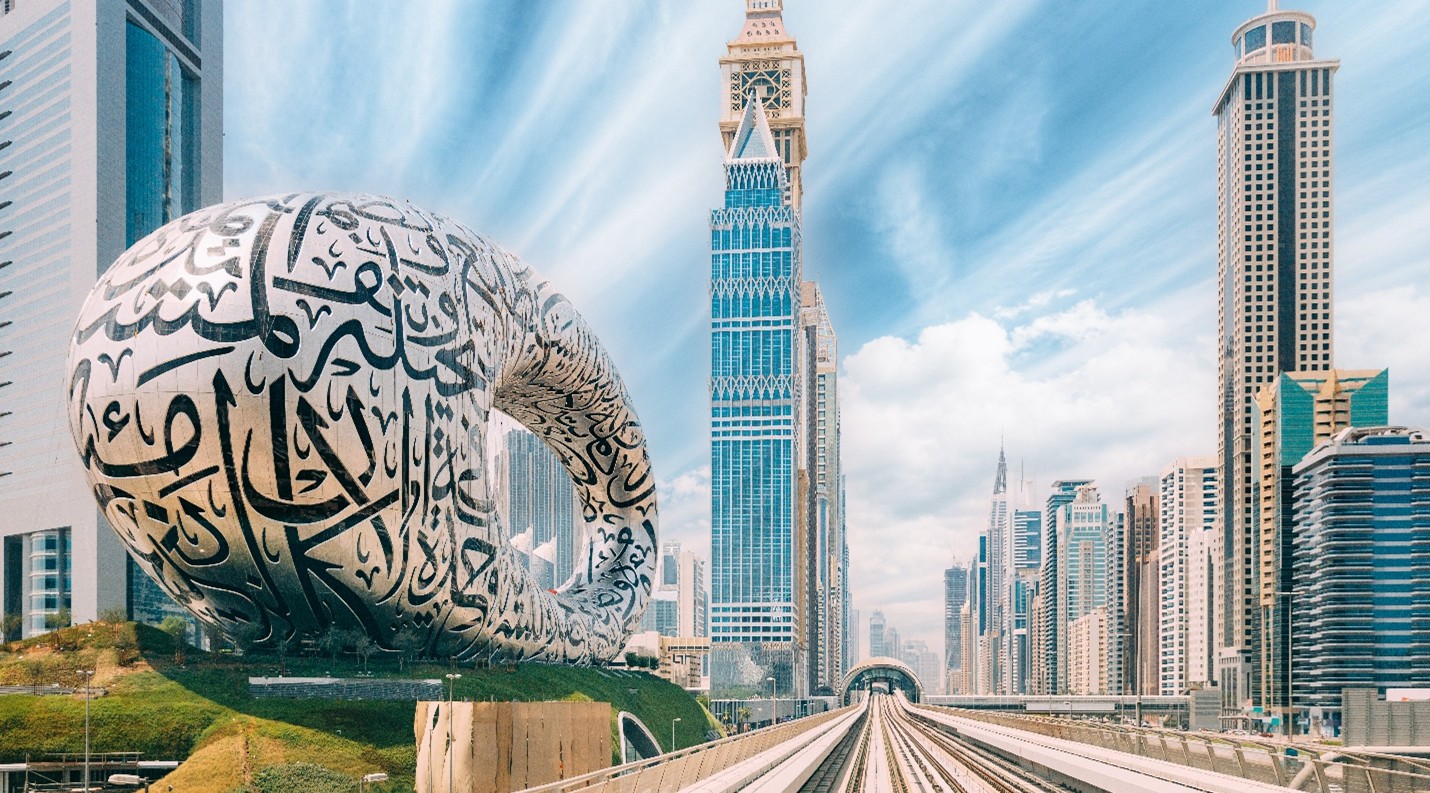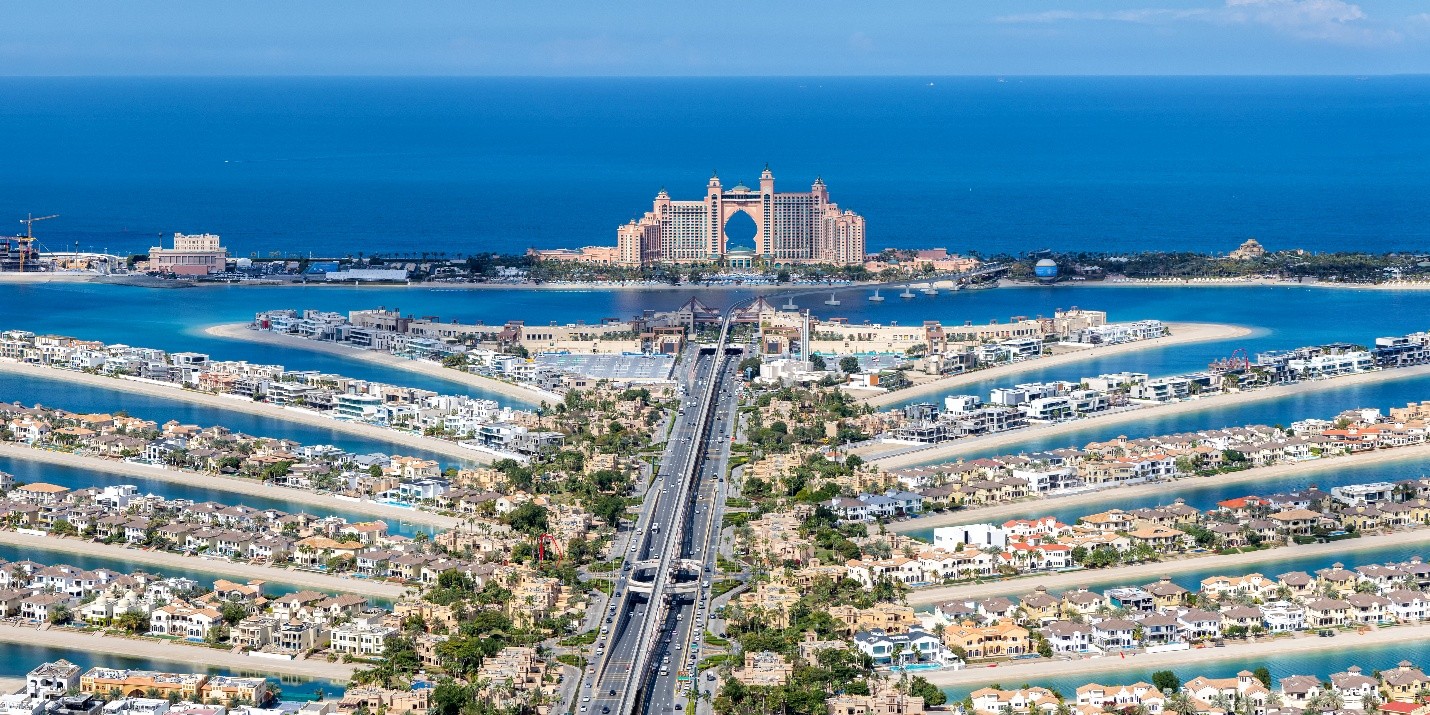
Dubai Real Estate Trends 2025: Land and Niche Investments on the Rise
By Ikigai Real Estate
The first half of 2025 has revealed a clear shift in investor focus. Land transactions are surging, niche segments are gaining ground, and long-term infrastructure plans are reshaping where, and how, capital is flowing. This isn’t a passing trend; it’s a structural evolution driven by regulatory reforms, mega-projects, and changing buyer behaviour.
Land: The New Gold of Dubai Real Estate
Why Land is Dominating Transactions
Current data reveals that land sales continued to dominate Dubai’s real estate activity, accounting for 44.4% of total transactions in June 2025. This brings the total real estate transactions for the first six months of the year to AED 326.7 billion across 98,462 transactions. Industrial and residential land remain the primary growth drivers, sustaining momentum seen earlier this year.
But what’s behind this continued momentum which marks a 40% year-on-year increase for the first half of 2025?
Two powerful forces are at work: First, strategic infrastructure projects are creating land investment hotspots. Areas like Al Warqa Fourth have seen significant price appreciation, with a plot selling for AED 72 million in February 2025, driven by proximity to new leisure destinations such as Al Qudra Lakes, which is undergoing major tourism infrastructure development. Meanwhile, Dubai South continues to attract substantial investment, with AED 15 billion in property sales recorded in the first five months of 2025 alone, as investors respond to the AED 128 billion ($35 billion) expansion of Al Maktoum International Airport and the adjacent Expo City corridor, which received approval for a new master plan positioning it as a hub for 35,000+ residents and 40,000+ professionals.
Second, regulatory reforms have opened new doors for foreign investors. The reclassification of central zones like Sheikh Zayed Road and Al Jaddaf into freehold titles unlocked 457 plots for foreign ownership on January 19, 2025 (including 128 on Sheikh Zayed Road and 329 in Al Jaddaf), triggering sustained investor interest. The first freehold project on Sheikh Zayed Road, the 60-story AA Tower, has already launched with units priced from AED 2.932 million to AED 5.4 million.
Meanwhile, the Dubai Land Department has implemented enhanced regulatory frameworks in 2025, including streamlined digital processes, improved escrow protections, and the Smart Rental Index system, substantially reducing registration timelines and enhancing market liquidity.
MARKET SNAPSHOT - JUNE 2025: Land transactions reached significant levels, forming a strong share of Dubai's 16,303 total real estate deals in June 2025. Total market value hit AED 54.21 billion, up 16% YoY. The luxury segment continues to break records, with sales above $10 million reaching $2.6 billion in Q2 2025, a 63% increase year-over-year.
Niche Segments: Where Innovation Meets Investment
Dubai’s next growth phase is unfolding in highly specialised pockets of the market: carbon-smart communities, trophy branded homes and logistics land – each powered by new infrastructure and policy tail-winds.
Sustainable and Green Developments
Expo City Dubai is fast becoming the UAE’s flagship net-zero testbed. The newly launched Al Waha Signature Residences (284 units) converts former country pavilions into apartments and duplex lofts, tapping into the Expo legacy that retained about 80% of site infrastructure and amassed 123 LEED-certified buildings, seven at Platinum level. While Al Waha’s own certification is still in progress, demand has been strong: one-bed prices start at AED 1.7 m and early phases of Expo housing were fully subscribed within hours of release.
Beyond Dubai’s urban core, sustainability is extending to the mountains. The 250 MW Hatta pumped-storage hydro plant is 94% complete and will begin exporting clean energy to Dubai’s grid in April 2025. Although purpose-built “eco-villas” around the dam have yet to see formal sales launches, short-stay Terra Cabins and lodge products introduced by JA Resorts are commanding nightly rates 30-40% above comparable rural hotels, signalling pricing power in eco-oriented hospitality.

Luxury Branded Residences
Branded living remains the city’s most resilient luxury niche. Dubai closed 13,000 branded-residence sales in 2024, accounting for 7.2% of all property deals and 12.6% of market value. Premiums average 40–60% per sq. ft versus conventional stock, rising to 73% on Palm Jumeirah.
Nothing illustrates the “trophy asset” mindset better than the “Sky Palace” duplex atop the Burj Khalifa: 21,000 sq. ft across floors 107–108, offered at US $49-51 m and marketed as the highest residence on earth. Such stock is typically bought shell-and-core, with buyers spending a further US $10 m on bespoke fit-outs to cement bragging rights.
Returns on Palm Jumeirah
Investors aiming for yield rather than altitude are still gravitating to Palm Jumeirah’s hybrid hotel-residence schemes, where serviced apartments and branded villas deliver gross rental returns of roughly 5-6% and enjoy superior occupancy thanks to integrated resort management. The sub-market’s liquidity is evident: Q2 2025 saw waterfront villa transaction values jump 63% year-on-year.
Industrial Land: The Quiet Out-performer
While glam headlines focus on villas and penthouses, industrial plots inside Dubai Industrial City (DIC) are trading briskly. A representative June 2025 transaction listed 110,000 sq. ft at AED 4.5 m (≈ AED 41 / sq. ft), with most deals ranging AED 41-45 / sq. ft. Bayut’s 12-month tracker shows 194 industrial-land sales worth AED 2.5 bn, though the figure includes built-up sites and thus averages a higher AED 127 / sq. ft on gross floor area.
DIC’s appeal is infrastructure-led: the Etihad Rail freight terminal, which was officially handed over in February 2025, offers 5 million-tonne capacity and direct rail access to Jebel Ali Port and Al Maktoum International Airport. For cold-chain operators, renewable-energy manufacturers and 3PLs, the rail-port-air trifecta cuts transit times and future-proofs ESG scores.
Take-Away for Investors
- Green premiums are real but project-specific: focus on certified stock (Expo City, Sharjah Sustainable City) where utility savings and future carbon compliance support higher exit values.
- Branded residences remain liquid but not yet 25% of the luxury market: the share is nearer one-tenth of all sales, albeit at record price premiums.
- Industrial plots offer sub-AED 50 / sq. ft entry points with rail leverage: DIC land linked to Etihad Rail combines yield stability with long-term appreciation as UAE freight volumes scale to 60 m t by 2030.
Careful asset selection across these niches can balance capital growth with resilient cash flow in Dubai’s fast-evolving 2025 market.
The Rise of Furnished Rentals and Tech-Enabled Properties
Turnkey Rental Demand Surges
Are you considering the rental market? Dubai’s rental market is experiencing a significant shift toward furnished properties, though the extent varies by property type and location. Jumeirah Village Circle leads furnished apartment searches, accounting for the highest percentage of furnished rental inquiries, followed by Business Bay, Dubai Marina, Downtown Dubai, and Jumeirah Lake Towers. Furnished apartments command rental premiums of 10-20% over unfurnished units, with high-quality furnished one-bedroom apartments in prime areas like Downtown Dubai and Business Bay renting for AED 100,000-150,000 annually compared to AED 170,000-240,000 for two-bedroom units.
Even higher yields are reported for premium furnished apartments in areas like Dubai Marina, with furnished properties typically achieving 15-25% premiums over unfurnished equivalents. This trend toward “ready-to-live” spaces reflects changing tenant preferences, particularly among expatriates and professionals seeking hassle-free living arrangements, with white-collar expats prioritising convenience and employers often covering rental costs for shorter 1-2 year tenancies.
Market forecasts for 2025 predict short-term rental rates will increase by 18% and long-term rentals by 13% compared to 2024 levels, driven by Dubai’s population growth of over 110,000 new residents in the first six months of 2025 alone (reaching 3.95 million by June 2025) and sustained demand from international professionals attracted by the city’s tax-free income and lifestyle offerings.
PropTech Integration Transforms the Market
Technology is fundamentally reshaping Dubai’s real estate investment landscape through unprecedented innovation initiatives. The Dubai PropTech Hub, launched in May 2025 by DIFC and Dubai Land Department, aims to grow the PropTech market to AED 4.5 billion by 2030, supporting over 200 PropTech startups and generating more than 3,000 jobs. The UAE now hosts 189 PropTech companies, nearly triple the number from two years prior, making it the fastest-growing PropTech hub in the MENA region.
The emergence of tokenised real estate through initiatives like DAMAC and Mantra’s RWA program has enabled fractional ownership of high-value properties like Palm Jumeirah villas. Dubai’s tokenization pilot achieved full subscription in under 24 hours, with 224 investors from 44 countries participating. In May 2025 alone, AED 1.4 billion of Dubai’s property sales were tokenized on blockchain platforms, representing a significant portion of the month’s AED 66.8 billion total market value. This innovation reduces entry barriers for retail investors who previously couldn’t access such premium assets.
On the utility front, smart living initiatives are leveraging AI-driven energy management systems to optimise building performance and reduce tenant costs. Properties featuring smart systems benefit from automated consumption monitoring, with each degree increase in AC thermostat settings saving up to 5% on cooling costs.
Smart buildings equipped with IoT-enabled devices and AI-powered energy management command higher rents and experience lower vacancy rates. Dubai’s Smart Rental Index, launched in January 2025, uses artificial intelligence to provide real-time, building-specific rental valuations based on technical conditions, amenities, and facility management quality. The index has processed over 900,000 rental contracts in 2024 (an 8% increase from 2023) and introduces a star rating system that ensures rental pricing reflects actual property conditions and services.
What This Means for Your Investment Strategy
Dubai’s property market is entering a more specialised, performance-driven phase: one where success hinges not just on location, but on timing, infrastructure alignment, and strategic asset selection. The surge in land transactions, the rise of branded and sustainable developments, and the growing appetite for turnkey furnished rentals all signal a shift toward more nuanced, future-focused investment plays.
Based on current market dynamics and the broader trajectory of Dubai’s 2040 Urban Plan, the Ikigai team recommends three core strategies for investors looking to position themselves ahead of the curve:
- Target infrastructure-adjacent zones for land acquisition, particularly in areas linked to major metro, airport, or freight developments where long-term value is likely to accelerate.
- Explore niche segments like sustainable communities and industrial logistics, which offer attractive returns and align with broader policy trends in clean energy, tourism, and trade.
- Consider high-quality furnished rental properties, which continue to command strong yields and higher occupancy as tenant preferences evolve toward convenience and flexibility.
At the same time, it’s important to approach these opportunities with awareness. AML regulations, FEMA compliance, and logistical risks in industrial segments can influence both feasibility and ROI. As Dubai’s real estate market becomes more mature and interconnected, informed, purpose-driven investing (not speculation) will be the real differentiator.
The trends shaping the first half of 2025 are just the beginning. For those who can interpret the signals and act decisively, this evolving landscape offers some of the most compelling opportunities in the global real estate market today.

CONNECT WITH US
Ready to explore how these emerging trends could benefit your investment portfolio? Contact our team of expert advisors who specialise in identifying high-potential opportunities aligned with your investment goals. Together, we can navigate Dubai's evolving real estate ecosystem and position your investments for maximum long-term value.
Shalini AroraCo-founder and Senior Property Consultant